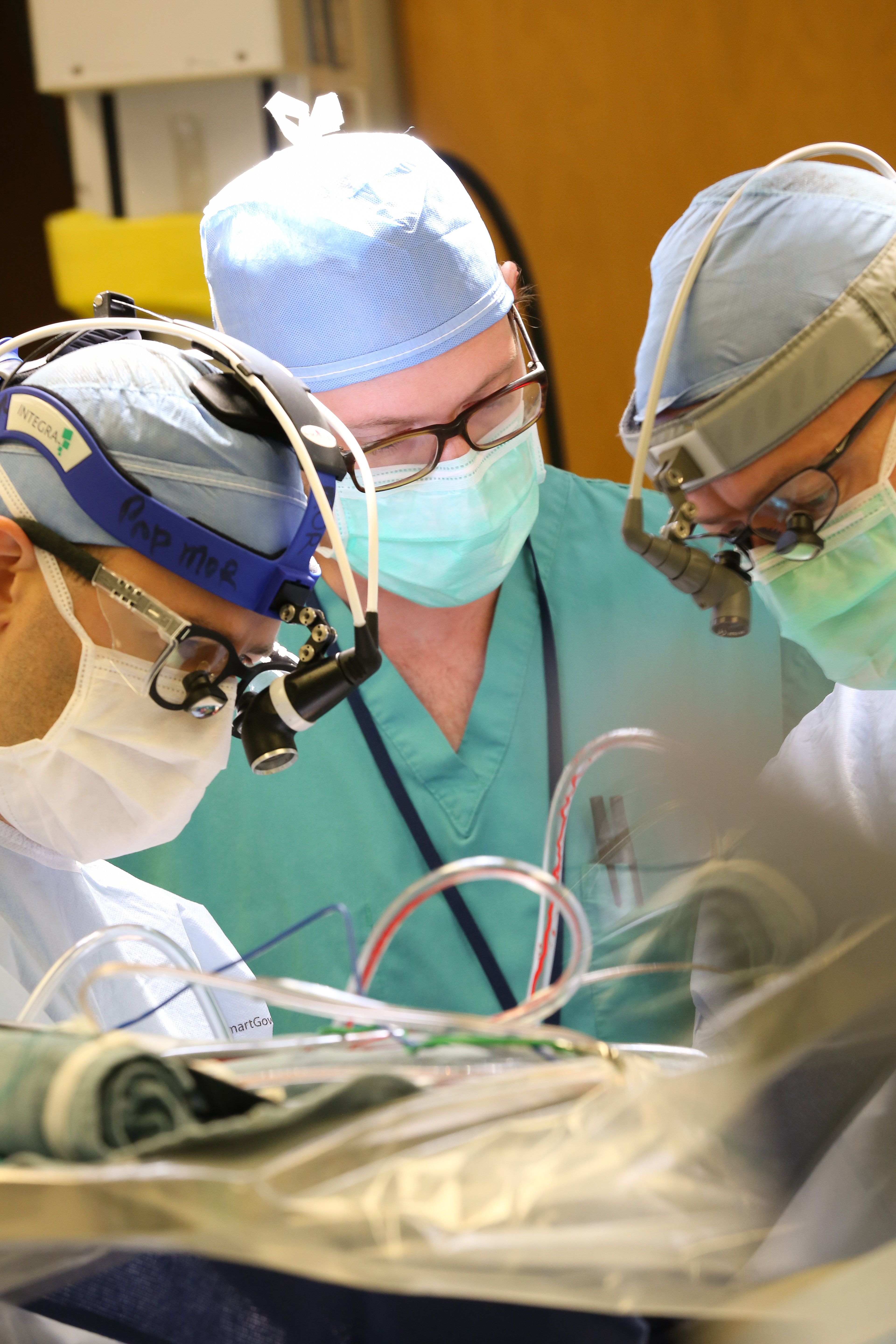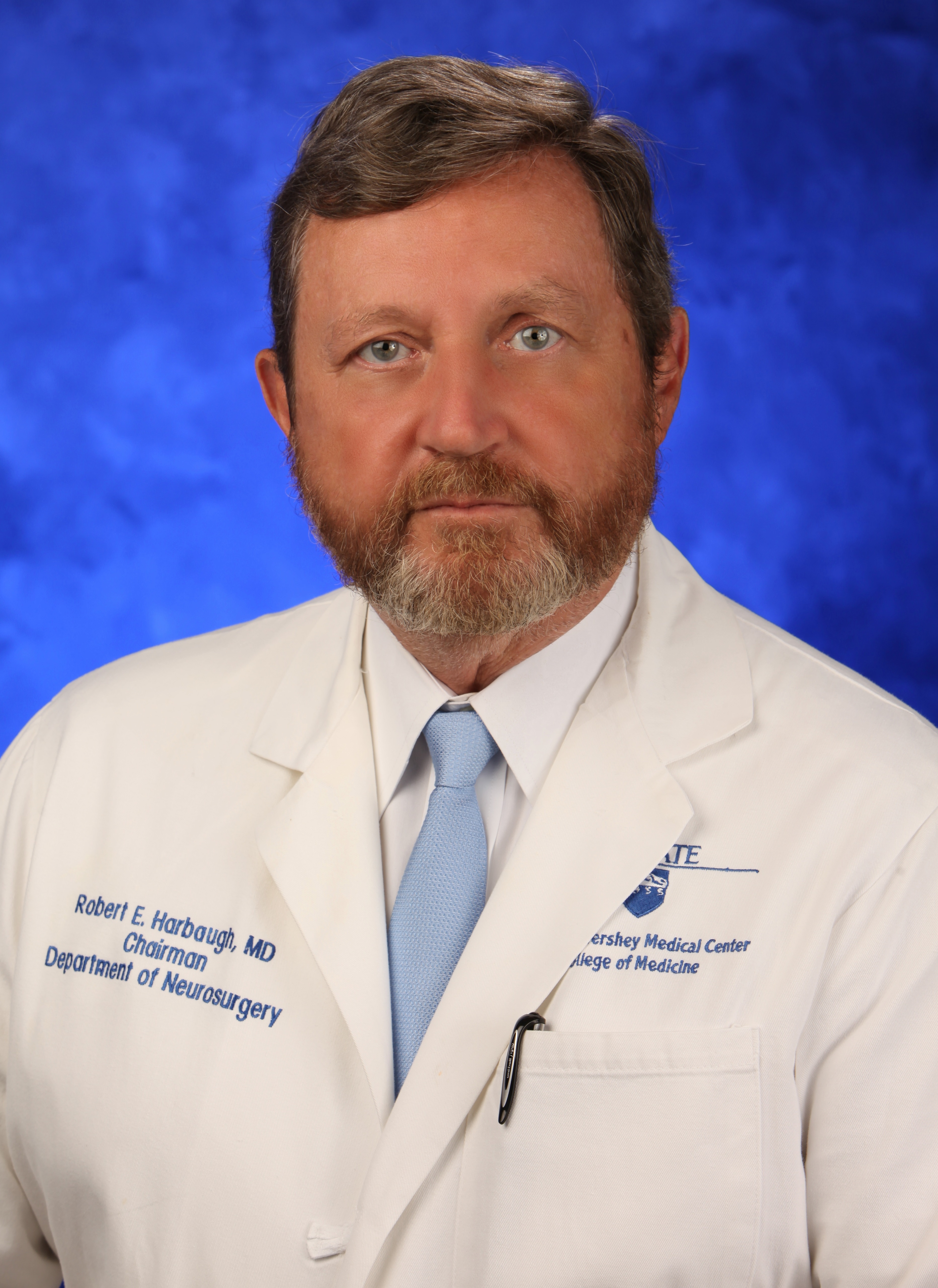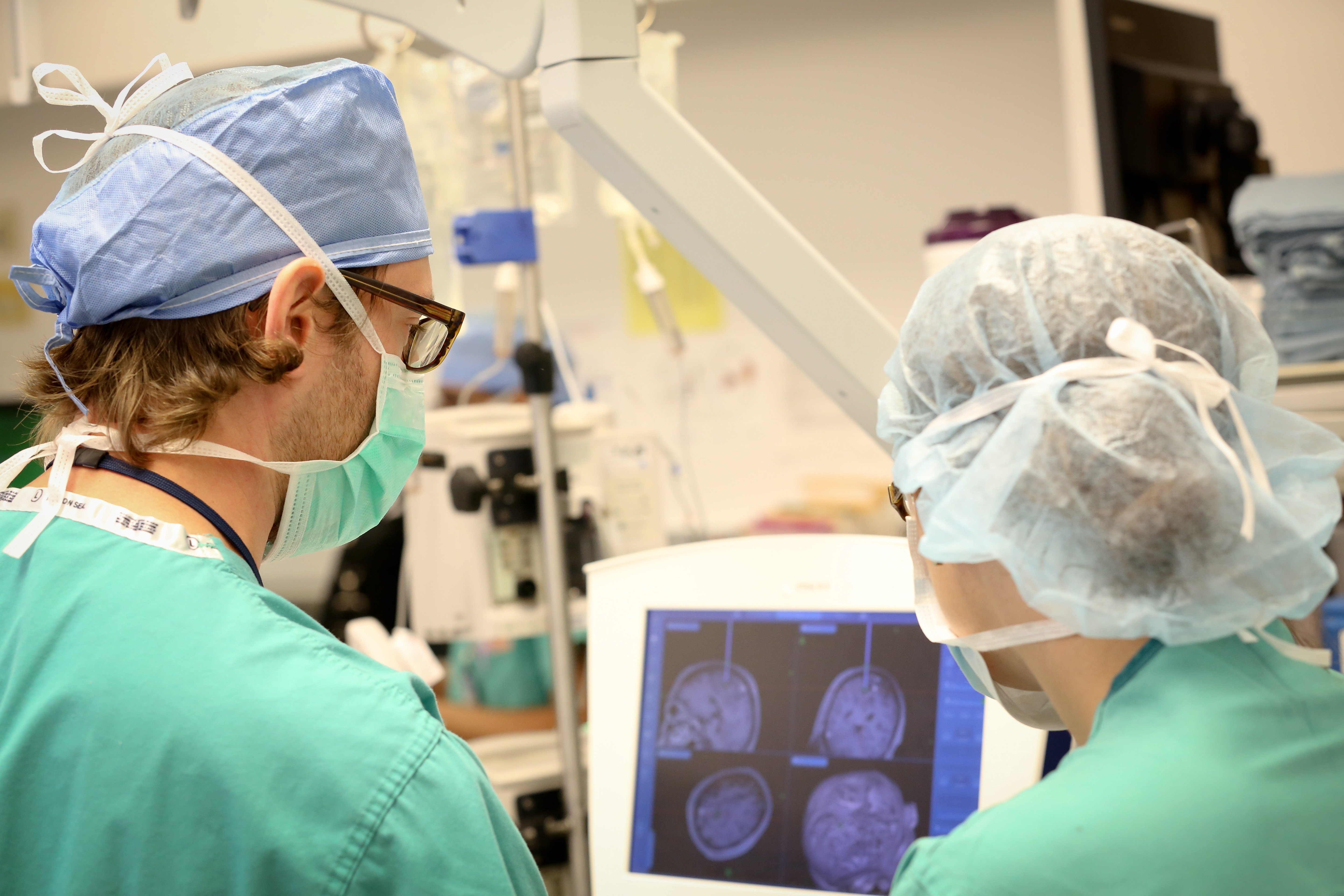Hershey Medical Center Neurosurgery gets the gold: hosts Society of Neurological Surgeons
by Peggy Koach

Penn State Health neurosurgeons perform brain surgery at Hershey Medical Center.
Name the top prize in any major field of endeavor and its associated host city quickly comes to mind—Nobel and Stockholm; Oscar and Los Angeles; the Olympic gold medal and, most recently, PyeongChang.
Now add to that honorary roll call: Hershey, Pa.
The Department of Neurosurgery at Penn State Health Milton S. Hershey Medical Center captured its own version of gold when it hosted the 109th annual meeting of the Society of Neurological Surgeons (SNS), the world’s oldest neurosurgical professional organization, from May 19 to 22. The prestigious event showcased presentations by Penn State College of Medicine faculty members and Milton S. Hershey Medical Center neurosurgeons.
The SNS consists of the country’s top neurosurgery clinicians, researchers and educators and is limited to 220 active members. Notably, six SNS members are from the College of Medicine or Hershey Medical Center.
Previous hosts of the society’s annual meeting include the Neurosurgery programs of Harvard University, Mayo Clinic, Yale University, Stanford University and Duke University.
The honor of being chosen to host the conference affirms the College of Medicine‘s place among the nation’s top-tier neurosurgical residency programs, according to Dr. A. Craig Hillemeier, dean, Penn State College of Medicine; CEO, Penn State Health; and senior vice president for health affairs, Penn State.
“The Department of Neurosurgery at Hershey Medical Center exemplifies our ongoing mission to provide world-class health care, while training the next generation of clinicians,” Hillemeier said. “As an academic medical center, we were honored to host the Society of Neurological Surgeons and highlight our exceptional clinical training and robust neuroscience research program.”
More than 300 people attended the conference, with at least one representative from each of the 110 neurosurgery medical education programs across the U.S. With the theme “Mentoring in Neurosurgery,” sessions focused on medical education, research and diversity in neurosurgery.
The decision to select Hershey Medical Center as the SNS 2018 meeting host was based on the strong reputation of the College of Medicine’s neurosurgery residency program and Dr. Robert Harbaugh’s leadership in the field, said Dr. Nicholas Barbaro, SNS president. Harbaugh served as SNS president from 2015 to 2016.

Dr. Robert Harbaugh is chair of the Department of Neurosurgery at Hershey Medical Center and Penn State College of Medicine.
“The Penn State neurosurgery program has what we would call ‘the classic triple threat’ in academic medicine ‒ namely, patient care, teaching/training and research,” Barbaro explained. “Hershey’s program clearly is doing it all.”
Penn State’s pioneering research in the field of brain science was another factor, said Dr. Darrell Kirch, president and CEO of Association of American Medical Colleges and former dean and CEO at Hershey. He points to research studies being conducted at The Penn State Center for Neural Engineering, an intercollegiate collaborative research group that bridges the Colleges of Engineering, Medicine and Science. One study underway is examining the use of nanotechnology in drug delivery to the nervous system. Nanotechnology is the manipulation of matter on a molecular scale.
“The complex problems we face in medicine require us to tap into all the broad range of sciences and engineering. Penn State has that breadth,” Kirch noted.
Each year, the SNS dedicates the Sunday morning of its annual meeting to presentations by the meeting host. The attendees gathered at Hershey Medical Center to learn about Penn State neurosurgery clinical programs in all subspecialty areas, as well as the innovations in resident education, and basic, translational and clinical research.
The Society’s focus on mentoring is more than just standard teaching, Harbaugh said. “It’s about turning good people into good doctors and then into great neurosurgeons,” he said.
I think one of the reasons Penn State was chosen to host this year’s meeting is that our residency program has overcome many challenges throughout its history to become a nationally recognized training program, largely due to the kind of people we have recruited both as faculty and residents.”
It also comes down to the culture of respect the educators and clinicians have for each other, Harbaugh summed up. “Neurosurgery at Penn State is a cohesive group, and we all respect each other tremendously. That shows in everything we do. Being selected to host this conference just reminds us that this is a pretty special place.”

Dr. Brad Zacharia, left, a neurosurgeon and director of neuro-oncology and skull base surgery at Penn State Neuroscience Institute, examines MRIs of a patient’s brain with a neurosurgical team member.
If you're having trouble accessing this content, or would like it in another format, please email Penn State Health Marketing & Communications.
